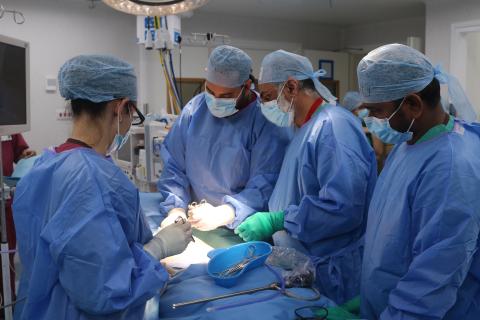Our Emergency Department is very busy right now and some people are experiencing long waits. If you do not require emergency care, please use an alternative such as 111 online.
Clear instructions will be given about fasting.
It is important to follow these, as food or liquid in your stomach during your anaesthetic could come up to the back of your throat and damage your lungs.
You should stop drinking clear fluids at least 2 hours before your admission
Clear fluids include:
- water
- diluting juice
- black tea (including decaffeinated)
- black coffee (including decaffeinated)
Do not drink milk and drinks containing milk within 6 hours of admission. Milk (and drinks containing milk curdle) become semi solid in the stomach, and are treated as solids.
Your operation can be cancelled if you drink even a small amount of milk or tea or coffee within 6 hours of surgery.
Non-clear fresh fruit juices containing pulp (e.g., fresh orange juice) should be avoided within 6 hours of admission.
You should stop eating all foods and stop drinking some fluids 6 hours before your admission.
This includes:
- all foods
- all non-clear fluids
- tea or coffee with milk
- fizzy drinks
- fruit juices with pulp
- sweets, chocolate or chewing gum
- milk
You can eat normally on the day before your surgery but it is a good idea to avoid large or fatty meals. This is because fat and dietary fibre tend to remain in the stomach for longer than other foods.
Most people will not eat after midnight and this can be a convenient cut off point. Children can be given a snack before bedtime.
How long do I need to fast for?
- Clear fluids including water, juice, diluted cordial, black tea or coffee - 2 hours
- Breast milk (babies) - 4 hours
- Non-clear fluids including tea or coffee with milk, milk or fizzy drinks - 6 hours
- Snacks including toast, pastries, chocolate, sweets, crisps, or chewing gum - 6 hours
- Full meals - 6 hours


